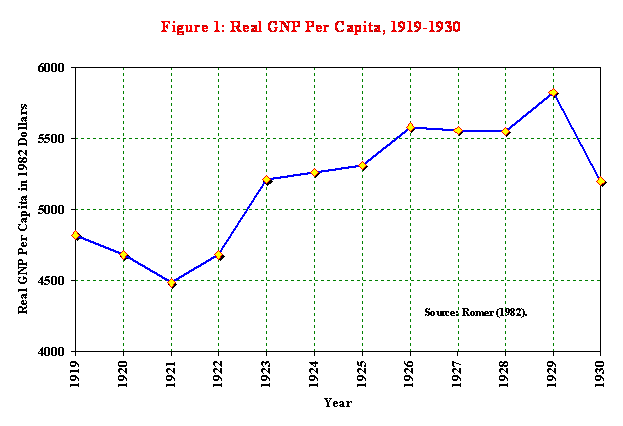I don't think you can properly understand this quote without looking at the GDP growth rates for the 1920s. The Great Gatsby is set in 1922, perhaps not co-incidentally the year with the highest growth of the 1920s. That year, things were getting better and better extremely fast, and I'm sure if you were living at that time you expected (or at least wanted to expect) it to continue.
Many people in the 1920s were convinced they were on the verge of a 'New Era', where all normal rules were suspended, and new technologies would lead to another 100 years of dazzling ultraprosperity, not unlike the 'New Economy' of the 1990s tech bubble.

The novel itself was written 1924-25, a couple of years after the giddy expectations of 1922 had probably burned off. It's interesting he chose to set the novel in that particular year. Following the 90s analogy, it would be like someone writing a novel in early 2000s about the year 1999 - in the same sort of cultural era, but with a darker, more sober mood.
The extrapolative expectations of the "orgastic future" was what made the plot of The Great Gatsby possible. Would any of the characters have been so willing to gloss over their deep personal problems otherwise? "It was an easy, quick adventurous age, good to be young in, and yet coming out of it, one felt a sense of relief, as on coming out of a room too full of talk and people into the sunlight of the winter streets" said Malcolm Cowley, on the end of the 1920s. They lived for the moment, deferring serious problems for later.
The frivolous, extravagant lifestyle of the novel only makes sense with the assumption the future was taken care of. But it seems like people even during that era suspected it would soon come to an end. Like this popular poem, written in 1920:
"My candle burns at both ends;
It will not last the night;
But ah, my foes, and oh, my friends—
It gives a lovely light!"
It seems like they were on some level choosing to suspend judgement - to believe in that orgastic future. As F Scott Fitzgerald wrote in 'Echoes the Jazz Age' in 1931: "But moralizing is easy now and it was pleasant to be in one's twenties in such a certain and unworried time". Sadly, that ultraprosperous future that Gatsby believed in didn't arrive for another 20-30 years, and another world war.

